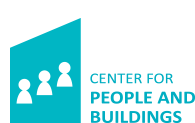Trends
Within the research area covering people, work and the work environment, numerous trends and specific issues may be distinguished. The following is a selection of some of the issues with which we concern ourselves:
The Academic Workplace
Universities and colleges want future-oriented accommodations for education, while also trying to reduce accommodations costs, in order to have more funds available for the primary process. CfPB does research for various educational institutions on the effects of reduced surface area, flexible working, combined study environments where students and faculty work and learn alongside each other, and how to implement future-oriented education.
Demographic Trends
Our workforce is aging. What will this mean for the work environment of the future, also considering variance in digital skills and preferred styles of work between generations?
The Laboratory as Work Environment
Laboratories are specific work environments with their own requirements and processes. In 2012, we were contacted by laboratories requesting the development of measuring instruments for laboratory work environments. In close collaboration with four laboratories, we subsequently designed these instruments. In the meantime, more research has been done on the work processes and resulting requirements for the work and laboratory environment.
Sustainable Office Accommodations
Partly due to government rules and regulations, offices are becoming more and more sustainable. The focus tends to be on technical measures, e.g. heat/cold storage systems, insulation, etc. Research by CfPB shows that a great deal may also be gained by increasing office users' energy awareness.
The Future of Work
It's in the news daily: work is changing, making new demands on the work environment. In November of 2015, Futures Forum was started in order to address the issues of how work will change, which trends influence this and what that means for the work environment. We translated the research results into a policy agenda for the support services; FM, HR, RE and IT.
New Ways of Working
New Ways of Working (NWoW) are becoming more and more common in our country, both in private and public organizations. But what are these New Ways of Working, are they so very New, and do they actually Work? So far, their popularity seems based more on stories than facts.
Workplaces for Everybody
The implementation of the Participation Law in January 2015 is intended to lead to more people with occupational disabilities joining the regular workforce. This raises the question of which work environment modifications will be required in order to allow this category of employees to work well and in comfort.
